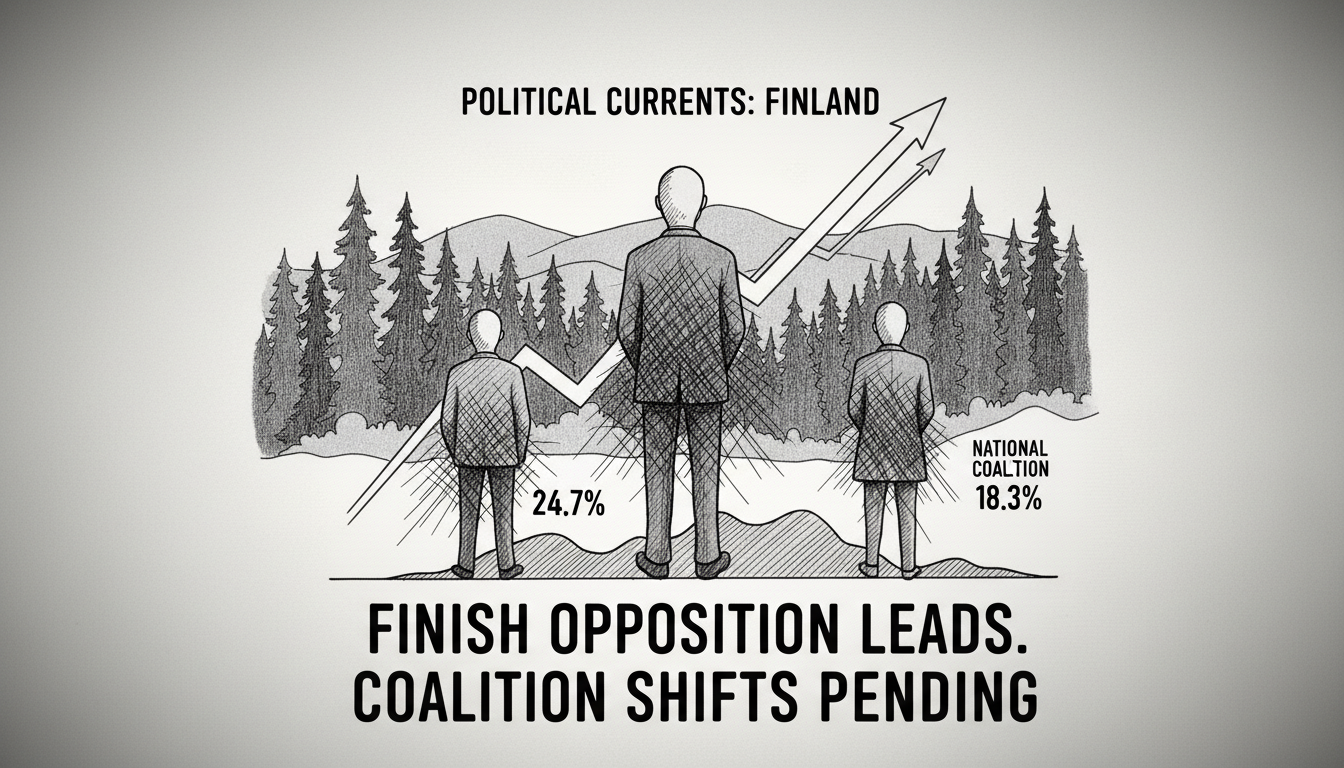Finland's main opposition party continues to hold the top position in the latest political survey. The Social Democratic Party would capture 24.7 percent of votes if parliamentary elections were held now. This shows the party maintains strong public support despite being in opposition.
The ruling National Coalition Party follows in second place with 18.3 percent support. The Center Party holds third position with 15.3 percent of voter preference. These numbers reveal a stable political landscape with clear frontrunners.
The Finns Party shows signs of recovery in the latest polling data. Their support has rebounded after previous declines. Meanwhile, the Center Party experienced a slight dip in popularity. These shifts matter because they could influence future coalition negotiations.
Finnish politics operates through a multi-party system where coalition governments are common. No single party typically achieves majority control. This makes smaller parties crucial for forming working governments. The current survey results suggest potential challenges for future government formation.
International readers should understand that Finnish political parties span from left to right. The Social Democrats represent center-left politics while the National Coalition leans center-right. The Finns Party typically advocates for nationalist policies and stricter immigration controls.
These polling numbers carry weight beyond mere statistics. They influence political strategies and public discourse. Parties often adjust their messaging based on such surveys. The results also signal public sentiment about current government performance.
What do these numbers mean for Finland's future direction? The continued strength of opposition parties suggests voters may be considering alternatives. Yet the relatively stable rankings indicate no major political upheaval appears imminent. The subtle shifts between parties nevertheless warrant attention from political observers.
For expats and international businesses, these political dynamics matter. They can influence economic policies, foreign relations, and domestic regulations. Understanding which parties hold public support helps predict potential policy changes.
The Finnish parliamentary system requires parties to build consensus. Even leading parties must negotiate with smaller partners. This survey provides early indicators of which alliances might form after future elections. The numbers suggest multiple coalition possibilities remain viable.
Political analysts watch these trends closely. Small changes in support can dramatically alter government formation mathematics. The recovery of The Finns Party support could make them a potential coalition partner again. Meanwhile, the Center Party's slight decline might weaken their negotiating position.
These developments occur against Finland's recent NATO membership and economic challenges. Voters weigh international security concerns alongside domestic issues. The polling results reflect how Finns balance these competing priorities through their political preferences.

